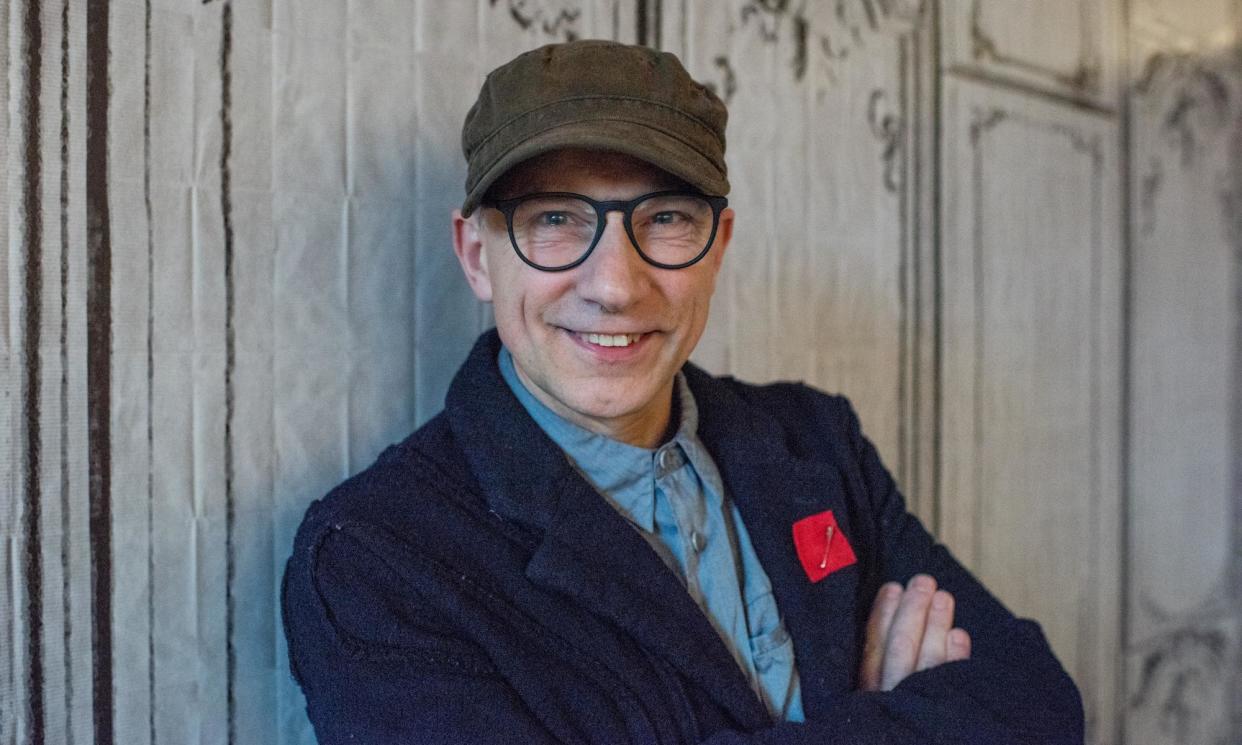On my radar: Simon McBurney’s cultural highlights

Born in Cambridge in 1957, Simon McBurney is an actor, playwright, and theatre and opera director. In 1983 he co-founded the theatre company Complicité, which has put on productions such as the award-winning The Encounter, A Disappearing Number, A Dog’s Heart, and 2022’s Drive Your Plow Over the Bones of the Dead. McBurney’s filmography includes Tinker Tailor Soldier Spy, The Manchurian Candidate and The Last King of Scotland. He is married to concert pianist Cassie Yukawa; they have three children. Mnemonic, originally conceived and directed by McBurney in 1999, is at the Olivier theatre, National Theatre until 10 August.
1. Book
Being a Human by Charles Foster
It’s a wild book: outrageous, hilarious, and urgent. Charles Foster also wrote Being a Beast, in which he tried to live as a badger. Here he lives, with his son, as a Paleolithic man, then a Neolithic man, and then as a person from the Enlightenment. It’s a completely crazy idea. At one point his son says: “Dad, what decides when the day ends, the sun or the stars? Which is the most important?” That whole idea of boundaries is beautifully described in the book. It’s an adventure in 40,000 years of consciousness.
2. Restaurant
The Long Table is a fascinating local experience. You pay what you can: if you feel you have more money you can pay for somebody else’s meal. Everybody in Stroud now knows about the Long Table, and the principle is: what if everyone in the community had access to great food and people to eat it with? You have absolutely delicious conversations, and the food is delicious. It’s been called an unorthodox monastery, but being religious isn’t a prerequisite – the idea of sharing and sheltering is. It’s something that should happen on a larger scale.
3. Place
Hetty Pegler’s Tump is a fantastically well preserved Neolithic long barrow; from the top you can see down all the way to the Severn estuary. It’s an extraordinary place for contemplation and being inside the earth for a moment: by sitting inside it, you jump over 5,000 years. There are quite often bats who are also sitting in it with you. It’s a wonderful reminder that the dead need to be everywhere around us: we need to feel their presence, because it is our ultimate future, after all. Without them, we’re incomplete.
4. Movement
After the Nuremberg trials, you had a neologism to describe the horrors of the second world war, which was genocide. Now there is another neologism, ecocide, which means “unlawful or wanton acts committed with knowledge that there is a substantial likelihood of severe and either widespread or long-term damage to the environment”. Stop Ecocide, which is also being run from Stroud, is a movement trying to make it an international crime. That’s not going to stop fossil fuel companies from destroying the world, but it will be a deterrent – they won’t be able to get insurance, because it’s against the law.
5. Radio
Sadly, in 2019 it went down from three shows to once a week. But it’s a place where you hear music that you don’t find anywhere else in the world. I get to hear things like This Is Not This Heat, doom jazz, Pulled By Magnets, or somebody like Cosmo Sheldrake, who has put microphones into the earth to be able to hear the movement of trees sucking up moisture from the ground. It’s crazy, wonderful stuff, which opens your mind. My wife, Cassie Yukawa, who is an artist and musician – she and I find our soul place with Late Junction.
6. Art
This is a 35-minute film about death, inspired by, and set against, Gabriel Fauré’s Requiem. It has been innovatively recorded and mixed in 360-degree sound: it envelops you, making you feel truly present. It is a profound and moving meditation on mortality, challenging our modern detachment from the dead and questioning the place of death in our lives. The film shows people dying, and their bodies returning to nature, emphasising that the dead are an integral part of the living sequence of events. It is the great disaster of modern times that we now think of the dead as the eliminated.


